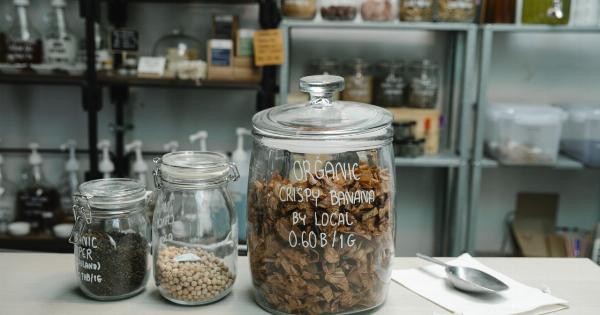Our respiratory system plays a vital role in keeping our bodies functioning properly. The lungs, in particular, serve as the primary organs responsible for the exchange of oxygen and carbon dioxide.
However, factors such as pollution, smoking, and respiratory infections can take a toll on our lung health.
Fortunately, nature provides us with a range of herbs that can help support and promote healthy lung function. Let’s explore ten powerful herbs known for their ability to nourish and cleanse the respiratory system:.
H2 Tag 1: Mullein
Mullein, also known as Verbascum thapsus, is a common herb found in parts of Europe, Asia, and North Africa.
It has long been used to support lung health due to its expectorant properties, meaning it helps to expel excess mucus from the respiratory tract. Mullein is available in various forms, such as tea, tincture, or capsule, and is often used to manage respiratory conditions like coughs, bronchitis, and asthma.
H2 Tag 2: Eucalyptus
Eucalyptus, scientifically known as Eucalyptus globulus, is native to Australia but is now grown worldwide. Its leaves contain a compound called eucalyptol, which possesses powerful antimicrobial and expectorant properties.
Inhaling eucalyptus oil or using it as a steam inhalation can help soothe respiratory congestion and promote clearer breathing. It is commonly used in cough syrups, chest rubs, and throat lozenges.
H2 Tag 3: Oregano
Oregano, or Origanum vulgare, is a well-known herb in culinary traditions and also offers numerous health benefits. It contains compounds such as carvacrol and rosmarinic acid, which have potent antimicrobial and antioxidant properties.
These properties make oregano an excellent herb for supporting respiratory health and combating respiratory infections. Oregano can be brewed as a tea or incorporated into dishes and salads.
H2 Tag 4: Thyme
Thyme, scientifically known as Thymus vulgaris, is another herb widely recognized for its culinary uses. However, it also possesses exceptional medicinal properties.
Thyme contains compounds like thymol, which acts as an expectorant and helps break down mucus in the airways. This herb is often used in combination with other respiratory herbs to support healthy lung function. Thyme can be consumed as a tea or as an essential oil diluted in carrier oil.
H2 Tag 5: Licorice Root
Licorice root, scientifically known as Glycyrrhiza glabra, has been used for centuries in traditional medicine due to its numerous health benefits. It is especially regarded for its ability to soothe and support the respiratory system.
Licorice root contains compounds that help reduce inflammation and promote healthy lung function. It is commonly consumed as a tea or in the form of lozenges or cough syrups.
H2 Tag 6: Ginseng
Ginseng, specifically Asian ginseng (Panax ginseng) and American ginseng (Panax quinquefolius), is an herb often referred to as an adaptogen. It helps the body cope with stress and maintain overall well-being.
Ginseng has also been found to possess anti-inflammatory and antioxidant properties that support respiratory health. It is commonly consumed in the form of tea, capsules, or tinctures.
H2 Tag 7: Lobelia
Lobelia, scientifically known as Lobelia inflata, is a herb native to North America and has long been used in traditional medicine for various respiratory ailments. It is valued for its ability to relax the airways and ease respiratory distress.
Lobelia is typically taken in the form of a tincture or prepared as a tea to support lung health and alleviate symptoms of respiratory conditions.
H2 Tag 8: Coltsfoot
Coltsfoot, scientifically known as Tussilago farfara, is a herb native to Europe and parts of Asia. It has a long history of medicinal use and is widely recognized for its positive effects on respiratory health.
Coltsfoot contains compounds that promote bronchodilation and help soothe irritated airways, making it an excellent herbal remedy for conditions like coughs, asthma, and bronchitis. Coltsfoot is often consumed as a tea or taken in the form of tablets or capsules.
H2 Tag 9: Marshmallow Root
Marshmallow root, scientifically known as Althaea officinalis, has been used since ancient times for its soothing and healing properties. It contains mucilage, a gel-like substance that helps coat and protect the throat and lungs.
Marshmallow root is commonly used to soothe respiratory irritation and relieve dry coughs. It can be consumed as a tea or prepared as a syrup or lozenge.
H2 Tag 10: Plantain Leaf
Plantain leaf, scientifically known as Plantago major, is a herb native to Europe but now found worldwide. It has a rich history of traditional use in respiratory conditions due to its expectorant and anti-inflammatory properties.
Plantain leaf helps to loosen and expel mucus from the respiratory system, making it beneficial for coughs and congestion. This herb is usually consumed as a tea or prepared as a tincture.
It’s important to note that while these herbs can provide support for healthy lung function, they should not replace medical treatment or advice.
Always consult with a healthcare professional before incorporating new herbs into your routine, especially if you have any pre-existing medical conditions or are taking medications.
In conclusion, these ten herbs offer natural ways to support and maintain healthy lungs. Whether consumed as teas, tinctures, or capsules, each herb provides unique benefits to help nourish, cleanse, and protect the respiratory system.
By incorporating these herbs into your daily routine, you can take proactive steps towards promoting optimal lung health.






























